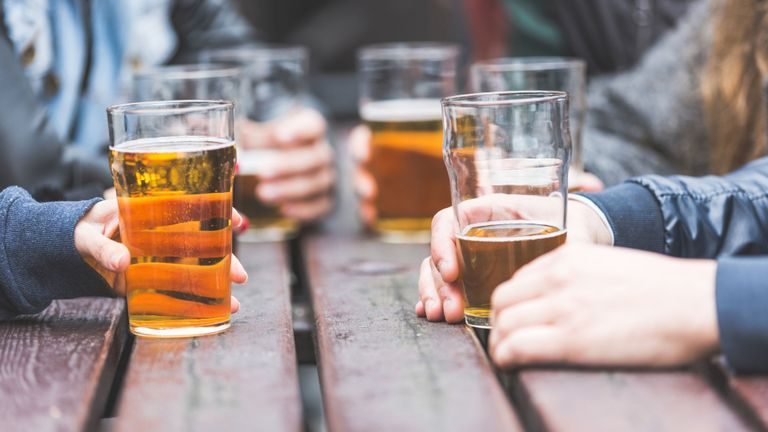
16 May 2019, London (CNN)
British people get drunk more than any other nationality, according to a new global survey.
The results of the 2019 Global Drug Survey, published Thursday, revealed that British respondents get drunk more times per year than people from anywhere else.
Adam Winstock, an addiction psychiatrist and founder of the Global Drug Survey, told that British respondents are drinking too much, too often, regarding getting drunk as the point of a night out as opposed to enhancing the evening.
“We have never grasped moderation — it’s not part of our culture or conversation,” he said. “We need to learn that more fun with better health and fatter wallets can follow from a bit less, a bit less often.”
And drinkers around the world should consider cutting down to benefit their health, said Winstock.
“Deaths due to alcoholic liver disease and cancer due to excessive alcohol consumption are on the rise along with obesity and poorer mental health,” he said. “Drinking too much makes all these worse — drinking less make them better.”
Researchers spoke to 123,814 people from more than 30 countries in preparing the report, and they found that people on average had got drunk 33 times in the past 12 months
Results reflect the number of times that survey respondents said they got drunk, rather than the amount of alcohol consumed.
Those from English-speaking countries got drunk most often, according to the report, while participants from South American countries got drunk on the lowest number of occasions.
UK respondents said they got drunk 51 times in the past year, compared with 50 times in the US, 48 in Canada and 47 in Australia.
Chilean respondents, on the other hand, reported getting drunk just 16 times a year, and Colombians 22 times.
Some 38% of survey participants said they wanted to drink less in the next year.
The Global Drug Survey has made an app, The Drinks Meter, to help people keep an eye on how much they are drinking, as well as publishing guidelines for safer drug use at saferuselimits.co.
Researchers also looked into drug use, with cocaine a focus.
Results show that 30.4% of those who reported using cocaine said delivery took less than 30 minutes — about the same time as a takeaway pizza — while 70% would support a regulated fair-trade cocaine market to reduce harm in producer countries.
“A regulated market could possibly even result in benefits for both the public purse and the health and well-being of populations — both those who use drugs and those who do not,” wrote Winstock in the survey results.
“Lower potency, lower risk cocaine products and smarter education could all be explored.”
Consumption of alcohol is increasingly globally.
Research published in the journal The Lancet earlier in May indicates that between 1990 and 2017, per capita adult alcohol consumption increased by nearly 0.7 liters (about the same in quarts) to 6.5 liters (6.9 quarts) annually around the world.
The number is predicted to reach 7.6 liters (8 quarts) by 2030.
By 2030, half of the world’s adults will drink (up from 45% in 1990), while 40% will abstain (down from 46% in 1990). Additionally, 23% of adults will binge drink at least once a month, compared with just 18.5% who did so in 1990.










